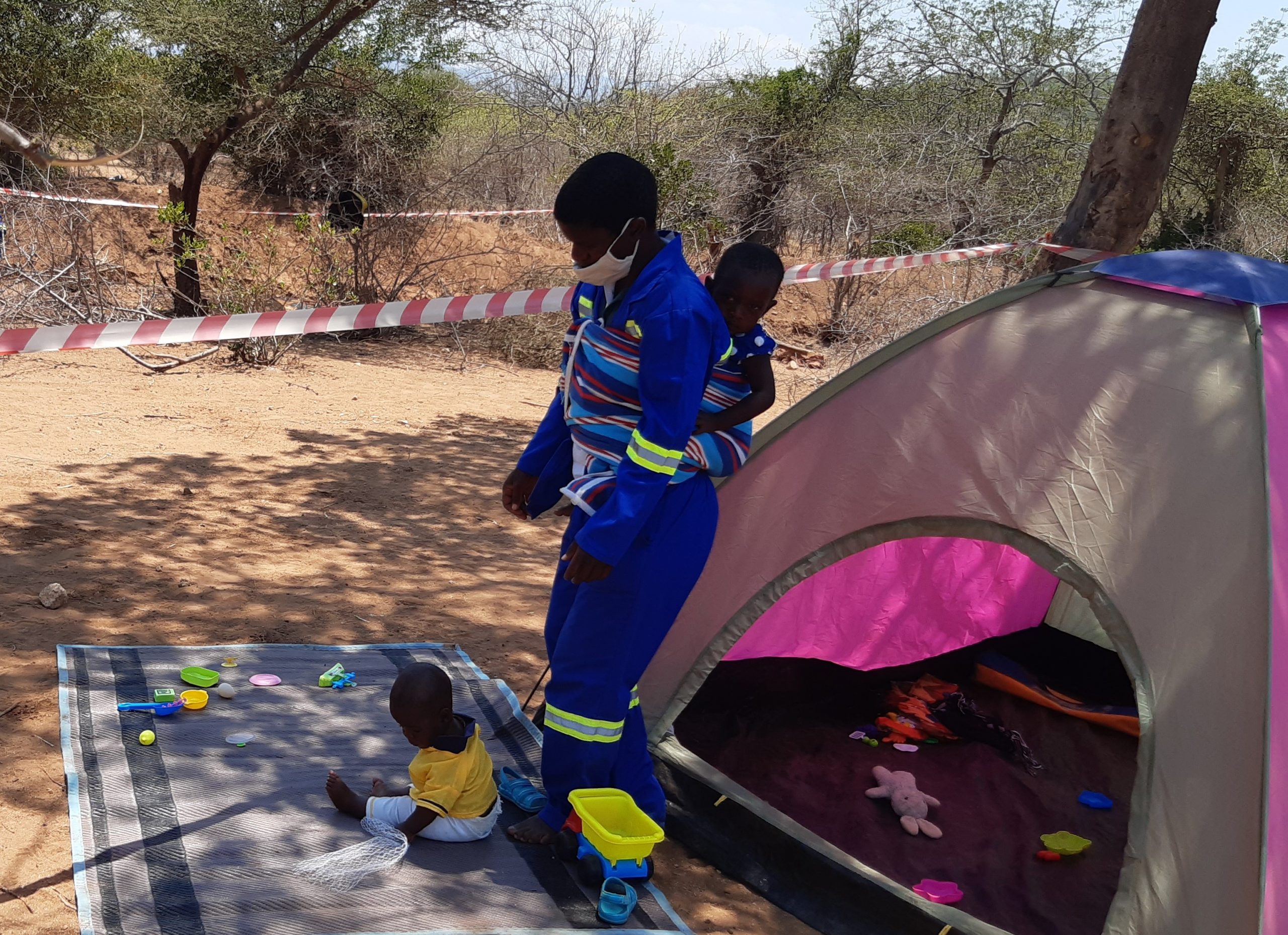UNOPS provides childcare facilities on construction sites for labor based community workers
In spite of our best efforts to be gender inclusive, sometimes women fail to participate in economic activities because of the conflict between their productive and societal roles. It takes deliberate effort to ensure that leadership, policy, process, resources and capacity are all aligned to facilitate the inclusion of women.
Under ZIRP,, UNOPS introduced childcare facilities at work sites to allow women to participate in labour works in community infrastructure activities. The facilities ensure that infants and toddlers of community workers access supervised care while their mothers are working.
The mobile childcare facilities are structured to protect the little ones from harsh weather conditions, and are fully equipped with toys and play mats to occupy the children. Sleeping mats have been provided for their nap time ensuring that the normal routine of the babies and toddlers is not disrupted. The working mothers are given an opportunity to take breaks to attend to their children without fear of reprimand for carrying out their care duties.
The community mobiliser, Caroline Hlatshwayo explained the various developmental needs of children which had to be considered in setting up these centres. “The concept of childcare facilities provides an opportunity for UNOPS to supplement the diets of the children by providing nutritive refreshments. At the same time, we are providing privacy for breastfeeding mothers to enable them to breastfeed exclusively for the recommended 6 months,” she said.
“Not only does this initiative empower women to earn a living, it gives them peace of mind to contribute productively to the infrastructure rehabilitation works being conducted in the community. We have seen a drastic reduction in absenteeism and the morale is high amongst our female workers.”
Since the introduction of this facility at Bwerudza Irrigation Scheme and Tanganda-Nyunga Road Rehabilitation in September last year, 20 mothers have managed to come to work with their children. “I feel very important when my role as a mother is recognised and I can also work at the same time,” says Thandiwe, one of the mothers who works at Bwerudza Irrigation Scheme.
Additionally, UNOPS is providing lockable toilets at all sites with emergency sanitaryware to support participation of women in the temporary income opportunities. Much investment has also gone into community awareness activities in order to create gender transformation and change the mindset of the community to embrace empowerment of women by allowing them to take on roles reserved for men.
The Gender Action Plan stipulated that at least 50% of the community workers should be female. As a result of such initiatives, this target has been surpassed.

